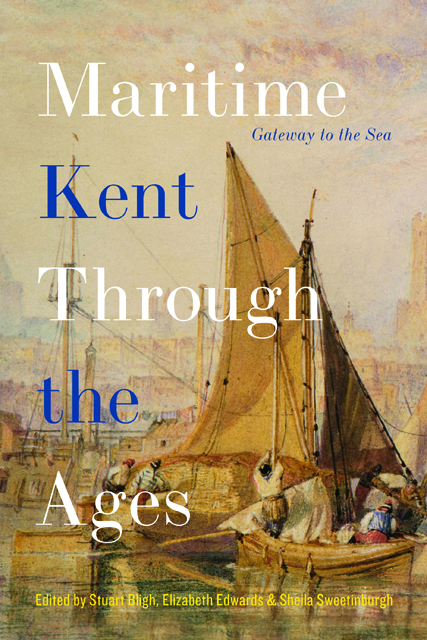3 - Defending the Kent Coast – Roman to Anglo-Saxon
Published online by Cambridge University Press: 20 December 2023
Summary
Since the formation of the English Channel after the last ice age, Kent has stood as the closest part of our island to mainland Europe. The distance across the Dover Strait is just twenty-one miles. The land of Kent (ancient Cantium, perhaps ‘corner land’ or ‘land on the edge’), itself, is geographically well defined, comprising a peninsula bounded by the Thames Estuary and North Sea along its northern margin and the Dover Strait and the English Channel on the eastern and southern sides. The intractable ground of the great Wealden Forest to the west has, historically, tended to create a natural landward barrier serving to isolate the region from other southern counties.
Conversely, the sea has always allowed regular movement of peoples, materials and ideas around the coast and also across the English Channel and the North Sea from mainland Europe. Over the centuries, however, in addition to peaceful traders and settlers, these same seas have also conveyed raiders and would-be invaders. The waters surrounding Kent have thus not only acted as an important communications artery but also as a defensive barrier and, on more than one occasion, a battle ground. What follows is a general overview of defending the shores of Kent during the Roman and Anglo-Saxon periods.
The Roman Period
The first major military actions in Kent for which there is any sound record are the two successive landings of the great Roman general Gaius Julius Caesar in 55 and 54 BC. Virtually all the known details come from Caesar’s personal war diaries. Where Caesar’s forces actually landed has been long discussed but it is now generally agreed that it was somewhere on the coast of east Kent. It remains a disappointing fact, however, that there is no sound archaeological evidence for any of Caesar’s documented activities in Britain. Accordingly, we cannot much improve on what Caesar himself tells us. Concerning his first arrival in 55 BC he records that:
he, himself reached Britain with the first squadron of ships, about the fourth hour of the day [around 9am], and there saw the forces of the enemy drawn up in arms on all the hills.
- Type
- Chapter
- Information
- Maritime Kent through the AgesGateway to the Sea, pp. 85 - 110Publisher: Boydell & BrewerPrint publication year: 2021



